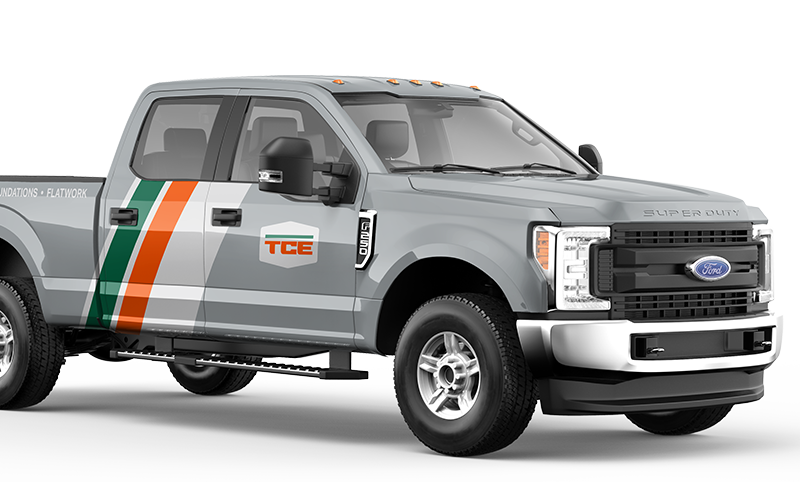6 Ways to Improve Your Ranking on Google

SEO is an exhausting process.
As algorithms continue to change, it's tough to keep up with the latest requirements. Every day, businesses struggle to combine the right cocktail of technical indicators, keywords, and website code to drive their sites further up the search engine result pages.
You'll constantly be tweaking and adjusting individual factors like a scientist in a lab, but eventually, the hard work will pay off. According to Hubspot research (1), organic search equates to 94% of all website traffic. What's more, the top page on Google has a 34.36 percent click-through rate, boosting your chance of sales significantly.
The question is, with so many different ranking elements to keep track of, which adjustments are likely to have the biggest impact on your opportunities for success? How can you make sure you're spending your valuable time on the right activities to earn Google's attention?
Well, some efforts are more significant than others.
Here's your guide to the six most important things you can do to rank with Google.
1) Backlinks Are Still Crucial
The entire online world is built on links. Each link branches off like lines on a subway station, connecting different authoritative sites in a route of relevant and useful information.
Google uses a combination of internal, outbound, and inbound links to determine exactly how valuable your pages are. In a best-case scenario, an authoritative site will include a relevant link to your site in an essential piece of their content. In an analysis of a million SERPs (2), Authority Hacker found that backlinks are still the number one factor in determining your reputation online.

To succeed with your backlinking, you'll want to have as few as possible links from low-quality domains, and various links to both your internal content and to high-quality information for your audience. Remember, linking to your own content helps to tie your pages together for Google and visitors, making each piece inherently more useful.
2) Content and Keywords Do Make a Difference
As well as backlinks, there's another must-have factor to consider in your SEO strategies too - and that's your content. Google's algorithm relies on keywords to determine whether your content correlates with the queries your audience is searching for.
Crucially, you can't just fill your content with keywords and expect to generate amazing results. Where you place your ranking terms, and how you use them will make a significant difference. For instance, Authority Hacker found a much stronger correlation between higher ranking in the SERPs, and keywords in meta descriptions, title tags, and H1 headers.

Another point to be aware of is that it's much easier to spread your keywords and crucial terms out naturally in a lengthy piece of content. While many people believe that long content leads to higher ranking, the research suggests that the longer piece is more valuable because they give you an opportunity to show Google more keywords without keyword stuffing (3).
3) Featured Snippets Are Growing in Value
There are many components of your content that make a difference to your SEO performance. For instance, duplicate content will reduce your chances of a higher rank, while fresh, relevant and interesting content leads to more sustainable marketing.
When crafting your content, one thing worth keeping in mind is search intent. In other words, you need to know what people are actually looking for when they type in the search bars. Knowing user search intent is crucial to driving organic traffic. For instance, CoSchedule achieved a 594% increase in their traffic when they reshaped their SEO strategy to align with intent (4).
Understanding search intent can also improve your chances of appearing in featured snippets with Google, meaning that you're the first to show up in that all-important top-rated section of the SERPs:

One way to gain a better understanding of search intent is to view reports like Site Search and user flow for an insight into what your customer is searching for. You can also view things like the Search Analytics Report in the Google Search Console (5).
4) Domains Could Make a Difference
Around 60% of the sites ranking in the top ten positions with Google are 3 years old or more. According to Ahrefs, there aren't many sites less than a year old that achieve the same ranking (6). You may need to spend some time on the web using the right techniques before you see real results.

In some instances, a domain name can matter too. Although Google does penalize exact-match domains where keywords are located in the URL, the penalty is more often for spammy sites with thinner content. Ultimately, URL length and keyword use might not have a lot of significance on your ranking. However, domain authority and age do have an impact.
You can check your page authority or domain authority using tools like Link explorer (7). Just enter your URL into the search box, and you'll get a report showcasing page authority, domain authority, and established links.
5) Page Speed and Mobile Performance
Page speed has long been referenced as one of the essential SEO ranking factors for any brand. Google is always trying to improve the experience that users have on the web, and part of that involves supporting fast-loading pages.
Google even announced an algorithm update in 2018 that specifically pushes faster-loading mobile pages to the top of the search results. Speaking of mobile, more people are now using mobile devices rather than desktops, which is one of the reasons why there have been significant changes in how Google ranks the search results. The mobile-first index means that if your site isn't optimized for mobile, you risk losing out.
Make sure you know:
- Whether your site dynamically adjusts to fit the size of the device
- Whether your font is easy to read on a small screen
- If your site is accessible and easy to navigate
- Whether content is hidden by interstitial ads
6) Security and Accessibility
Finally, it's essential to make sure that your website is easy to access and secure enough to put both Google and your users' minds at rest.
In terms of accessibility, the best thing you can do is use a well-coded website builder to develop your online presence and provide a robots.txt file that Google can use to access site information. A sitemap listing all of your available pages is also a great way to highlight your site navigation for Google's benefit.
For security, one of the easiest things that any business can do is invest in a security certificate that updates its URL from HTTP to HTTPS. John Mueller from Google has called HTTPS a light-weight ranking factor and "great for users" in the past.
Are You Ready to Rank?
It's easy to get overwhelmed by SEO in today's environment, particularly as "gurus" across the web make the idea of ranking increasingly more complicated and overwhelming. However, the truth is that SEO can be a lot simpler than it seems. As long as you get the essentials right, like backlinking, keywords, and content management, you'll be on the right path towards success.
If you're not sure how to improve your marketing in a cost effective way, grab a copy of our Strategic Marketing Ebook. It'll help you get predictable results and make your company more money.
If you are interested in learning more about our approach to the items discussed in this article, call (970) 744-3611 or send us an email so we can talk about what that would look like.
References
- https://www.hubspot.com/marketing-statistics
- https://www.authorityhacker.com/million-serps-analyzed/
- https://optinmonster.com/white-hat-vs-black-hat-seo/
- https://coschedule.com/blog/seo-content-strategy/
- https://www.searchenginejournal.com/google-search-console-guide/209318/
- https://ahrefs.com/blog/how-long-does-it-take-to-rank/
- https://moz.com/link-explorer


